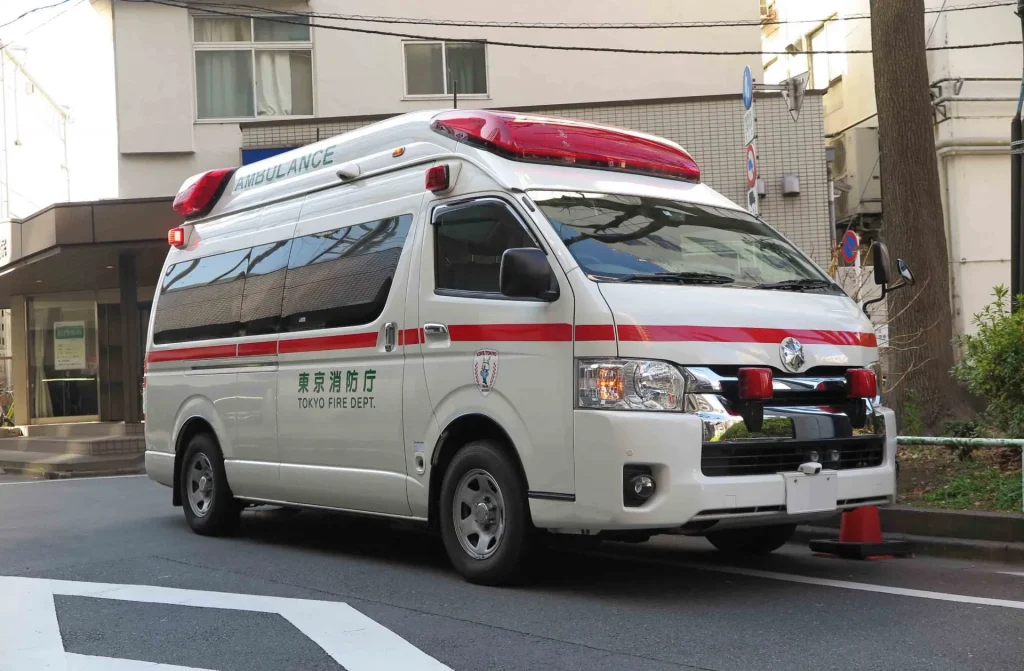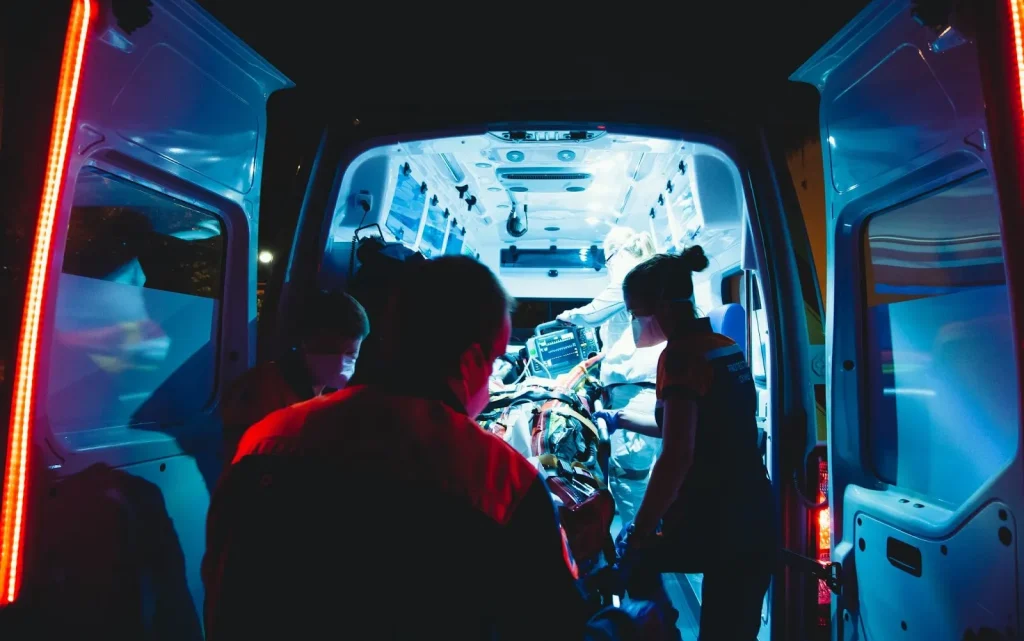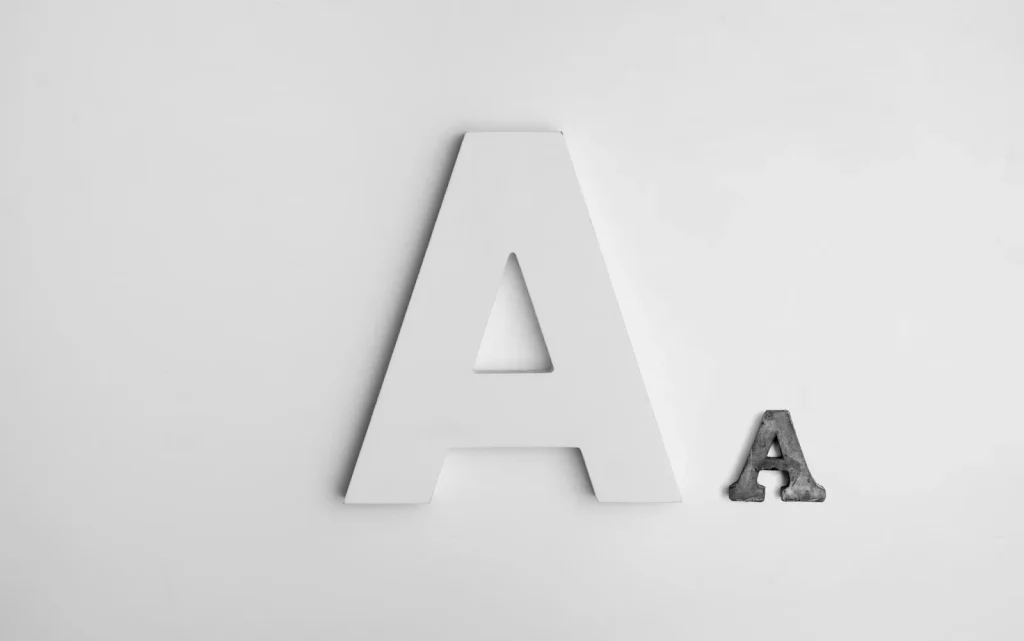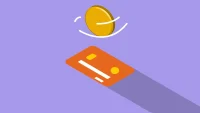How to call an ambulance in Japan (free of charge): What to tell them and what to prepare

Do you know what to do in the event of an emergency in Japan? Especially for those who have just arrived in Japan from abroad, it is important to know about Japan's unique emergency response procedures.
For example, if you encounter an emergency situation, such as when someone around you suddenly becomes ill or is involved in a traffic accident and is seriously injured, you need to call an ambulance quickly. With prior knowledge, you will be able to respond calmly in an emergency.
In this issue, we will introduce in detail how to call an ambulance in Japan so that even foreign residents in Japan can easily understand. Let's take this opportunity to learn together how to respond to emergencies in Japan.
▼Goandup Picks Click here for recommended articles!
- Required before studying abroad! Goandup Nihongo+, an online Japanese language learning service
- This page introduces services for foreigners who wish to study in Japan or improve their Japanese language skills to learn Japanese online.
- Goandup Salon" community for foreigners living in Japan
- We introduce an online community where foreigners living in Japan can exchange information and interact with each other to support their life in Japan.
- Goandup Study" supports foreigners who want to study in Japan.
- This section introduces study abroad support services that provide comprehensive support to foreigners who wish to study in Japan, from preparation for study abroad to living in Japan.
- Where can I buy a prepaid SIM in Japan? Recommended SIM cards for foreigners are also introduced.
- How to purchase a prepaid SIM and suitable SIM cards for foreigners.
- The Complete Guide to Pocket Wi-Fi in Japan for Foreigners!
- We introduce how to select and recommend pocket Wi-Fi products that can be used conveniently in Japan.
- The Complete Guide to Finding a Job in Japan! Finding a job, changing jobs, and part-time work for foreigners
- This site provides foreigners who want to work in Japan with comprehensive information on how to find a job, recommended job sites, and other information necessary to find a job.
How to call an ambulance in Japan|The number is 119

When calling for an ambulance, it is important to remain calm and follow the correct procedure. If you panic, you will not be able to respond appropriately.
Keep in mind the specific steps involved in calling an ambulance and be prepared in case of an emergency.
The procedure for calling an ambulance in Japan is as follows
- Identify those who need urgent treatment.
- Dial 119, the number that leads to an ambulance.
- Once connected, follow their instructions and give a brief, clear description of the condition of the person in question.
- Give the address of the place where you want the ambulance to come. (If you do not know the location, the ambulance cannot come. If you don't know the address, tell them what the building is like and any landmarks nearby.)
- Wait for the ambulance to arrive. Watch over the patient to ensure that he/she does not leave the vicinity of the patient.
- First, make sure that there is someone in urgent need of treatment.
- Next, dial 119, the number that leads to an ambulance, from a cell phone, smartphone, or landline.
*You can call "119" from a smartphone just as you would from a landline. - Once you are connected to an operator, calmly follow the operator's instructions and accurately describe your symptoms and situation. At this time, it is important to keep the following points in mind when explaining the situation.
- Who is suffering from what symptoms?
- Is the patient conscious and breathing normal?
- If injured, is there bleeding, etc.
- Give the exact address where you would like the ambulance to come. If you do not know the address, tell them the name of a landmark building, intersection, store sign, or other nearby landmark.
- Stay with the patient and watch over him or her until the ambulance arrives. If possible, have one person waiting outside to guide the ambulance crew.
If the patient's condition does not appear to be serious, but you are not sure whether you should call an ambulance, another option is to contact the hospital's consultation service. Depending on the prefecture, dialing "#7119" or "#8000" will connect you to a dedicated service where you can consult a nurse or doctor. They will be able to determine the degree of urgency based on your symptoms and advise you on appropriate measures to take.
- #7119: If you are wondering if you need an ambulance
- #8000: For consultation regarding a child's sudden illness or to confirm the need for a medical examination
What to ask and tell on the phone

When you call 119, the operator will ask you a few questions to ascertain your situation. In an emergency, you may be upset and unable to explain well. However, stay calm and answer the operator's questions slowly. It is most important to give accurate information so that emergency personnel can respond quickly and appropriately.
The main questions asked by the operator are as follows
- Information about yourself who made the call: name, phone number, current location
- Landmark buildings: names of nearby public facilities, stores, etc.
- Information on sudden illnesses and injuries:
- Who and what is the condition? (illness, injury, car accident, etc.)
- Age, Gender
- Is he breathing easily? (Are you breathing normally?)
- Are you breaking out in a cold sweat?
- Are you pale?
- Can we talk normally?
- Learn more about symptoms
- Extent of injury and location of pain
- Information on any preexisting medical conditions and medications taken on a regular basis
- Relationship between the caller and the injured person: are they with you or are they calling you at your request?
- Guiding the ambulance crew: inform them of the waiting area so that they can join the ambulance when it arrives.
What to prepare before the ambulance arrives

Prepare the necessary items to ensure smooth patient transfer until the ambulance arrives. The following items are useful to prepare in advance.
Common items to be prepared
- Health insurance card or medical examination card
- Cash and insurance cards
- Medications taken on a daily basis and a medicine book
- Comfortable shoes (avoid slippers)
- Clothing that may be needed by the patient (e.g., jacket, kneecap, etc.)
What to prepare for infants and toddlers
In addition to the items listed above, the following items should be prepared for infants and toddlers.
- Maternal and child health handbook (to check immunization history, etc.)
- Diapers and change of clothes
- Feeding bottles, baby formula
- Favorite toy, stuffed animal
- Towel or light blanket
These belongings should be compactly packed so that they do not interfere with the first-aid team's treatment. It is a good idea to keep these belongings together on a regular basis so that you do not have to prepare them in a hurry.
Remember to bring any regular medications that you normally use. It is especially important for those with pre-existing medical conditions, such as heart disease or asthma, to accurately inform the emergency medical team of the medications you normally take. Always carry your medication book with you so that you can receive appropriate treatment at medical institutions.
Japanese translation of symptoms and how to read

When calling an ambulance, it is necessary to accurately describe the symptoms to the operator. Especially for non-Japanese, it can be difficult to explain symptoms in Japanese.
The table below lists the main symptoms to communicate when calling an ambulance, in your native language, Japanese, and romanized readings. Use this as a reference when speaking with the operator.
| Symptoms in English | Japanese translation of symptoms | how to read |
| Headache | 頭痛(ずつう) | zutsuu |
| Abdominal pain | 腹痛(ふくつう) | fukutsuu |
| Numbness | 痺れ(しびれ) | shibire |
| Hematemesis | 吐血(とけつ) | toketsu |
| Difficulty breathing | 呼吸困難(こきゅうこんなん) | kokyuu konnan |
| Unconscious | 意識がない(いしきがない) | ishikiga nai |
| Convulsions | 痙攣(けいれん) | keiren |
| injury | 怪我(けが) | kega |
| burn | 火傷(やけど) | yakedo |
If you or someone around you is complaining of any of these symptoms, do not hesitate to call 119. By accurately reporting the symptoms, you can receive appropriate treatment.
This chart is only an example of typical symptoms. It is important to call an ambulance even for symptoms not listed here if you judge that the situation is highly urgent. If you practice expressing your symptoms in English or Japanese on a regular basis, you will be able to explain them without panicking when the time comes.
Does it cost money to call an ambulance in Japan?

In Japan, there is no charge to use an ambulance. This is because the cost of operating an ambulance is covered by taxes. Therefore, there is no need to worry about the fee when calling an ambulance.
However, this is limited to the fee for calling an ambulance. For medical fees after being taken to the hospital by ambulance, you will be partially responsible for your own expenses, as they are covered by health insurance. For minor illnesses that do not require an ambulance call, it is recommended that you take a cab or private car to the hospital.
In some foreign countries, there is a fee for the use of ambulances. In the U.S., for example, the fee for an ambulance can be as high as several hundred dollars to several thousand dollars. Foreign residents in Japan need to understand the differences in the system from their home country.
It is rare in the world for a country like Japan to cover the operational costs of ambulances through taxes. This is an indication of Japan's attitude that values the lives and safety of its citizens above all else.
Ambulances are an important public service to protect the lives of the public. If you need to call an ambulance for a sudden illness or injury, do not worry about the fee and call 119 immediately.
Serious employment support to help you realize your dream of working in Japan!

Do you want to work in Japan?
Let us "Goandup" make that dream a reality!
【 Program Features 】
✅ JLPT N3 level Japanese language acquisition
✅ Thorough preparation for the specific skills test
✅ Full support for job hunting in Japan
Business-focused one-on-one lessons will help you find a job in Japan in the shortest possible time.
【 Program Menu 】
- Individual Japanese language lessons
- Intensive curriculum to obtain N3, especially specialized lessons for business Japanese that can be used at work.
- Intensive curriculum to obtain N3, especially specialized lessons for business Japanese that can be used at work.
- Preparation for the Specific Skills Test
- Customized materials for specific skill tests will be used to focus on frequently asked questions and learning to pass the test.
- Customized materials for specific skill tests will be used to focus on frequently asked questions and learning to pass the test.
- Resume and CV support
- To create resumes and CVs tailored to Japanese corporate culture, and to brush up on self-promotion and motivation for application.
- To create resumes and CVs tailored to Japanese corporate culture, and to brush up on self-promotion and motivation for application.
- Interview Preparation
- Guidance on areas for improvement through mock interviews and feedback based on corporate interview scenarios. Learn interview etiquette and behavior unique to Japan.
- Guidance on areas for improvement through mock interviews and feedback based on corporate interview scenarios. Learn interview etiquette and behavior unique to Japan.
- career consulting
- Provide introductions to companies that match the participant's career goals, select companies to apply to, and provide advice on the level of knowledge required by the companies to which the participant is applying.
- Provide introductions to companies that match the participant's career goals, select companies to apply to, and provide advice on the level of knowledge required by the companies to which the participant is applying.
- Chat Support
- In addition to one-on-one individual lessons, we also accept casual questions via DM (visa application, living support, assistance in finding a room, etc.).
If you are serious about your career in Japan, join us now!
▶︎ for more informationclick here.
We will do our best to support your success in Japan!
summary
In this issue, we have explained in detail how to call an ambulance in Japan. Let's review the key points.
- To call an ambulance in Japan, dial 119.
- There is no charge for ambulance service. However, hospital charges are to be borne by the patient.
- Once you are connected to 119, calmly answer the operator's questions.
- It is a good idea to practice expressing symptoms on a regular basis so that you can accurately convey the situation.
- After calling an ambulance, it is important to follow the instructions of the paramedics.
Make sure you know how to call an ambulance in case of an emergency. Acting calmly can save precious lives.
For foreign residents, the language barrier and cultural differences may make them feel uneasy about dealing with emergencies. But there is no need to be afraid. Emergency personnel will respond appropriately to patients even if they do not understand your language.
It is important to learn how to respond to emergencies on a regular basis, just in case.
This article details how to call an ambulance, but there are other emergency contacts that are helpful to remember. The following article outlines the contacts you should contact in an emergency, including the police, fire department, and ambulance. Please check them out as well!
▶︎ List of emergency telephone numbers and consultation in Japan: covering police, fire, ambulance, etc.
Your support will help us!
Thank you for visiting Goandup Picks. Our mission is to provide you with more useful information to show the world what Japan has to offer.
Your support will help us to further enhance our activities, so please support us!






